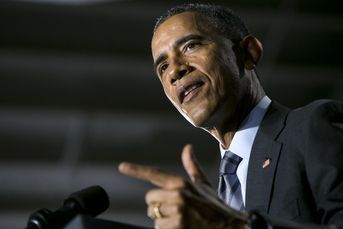Looking inside the president’s budget
Included are several revenue raisers, including new reforms, old standbys and one big surprise
President Barack Obama’s proposed budget for fiscal 2014 contains a host of revenue raisers relevant to taxpaying investors.
The budget is a conglomeration of 1) proposals discussed in recent tax reform hearings held by House Ways and Means Committee Chairman Dave Camp, R-Mich., 2) proposals the president has made previously that Congress didn’t act on, and 3) a shocker or two.
There are two tax reform revenue raisers from the Ways and Means Committee that, if passed, will affect investors dramatically.
The first change would force taxpayers to use an average cost basis in computing their gains and losses.
Under present law, if an investor sells less than all his or her shares, the taxpayer can choose which lot of shares is to be delivered (assuming the shares were purchased at different times and prices). The change would cost investors more than $2 billion over the next 10 years.
The second revenue raiser is to tax all derivatives as ordinary income (or loss) and mark to market all derivatives at the end of each year. This proposal has been seen as too wide-ranging and difficult to implement.
Taxing derivatives in this manwould raise almost $19 billion over the next 10 years, so this may not go away. I wouldn’t be too surprised, though, to see the tax treatment of exchange-traded notes change after the tussle is over.
For more on the Camp proposals, refer to my Feb. 25 InvestmentNews column, “Tax reform of financial products” (InvestmentNews.com/ taxreform).
There were multiple repetitions from Mr. Obama’s past budgets. A 30% “Buffett” tax, named for Berkshire Hathaway Inc. chairman Warren E. Buffett, was proposed again.
The proposal to tax carried interest as ordinary income is one idea that eventually will make it into law.
My March 25 column, “Another side of the carried-interest debate,” (InvestmentNews.com/carriedinterest) discussed how changes in carried-interest taxation can negatively affect investors.
Past estate and gift proposals involving the minimum time for grantor-retained annuity trusts, valuation issues and other odds and ends expected to raise $7 billion are reoffered, too.
A surprise was proposing to restore the estate, gift and generation-skipping transfer tax parameters in 2018 to those that were in effect in 2009. This would raise $71 billion from 2019 to 2023.
LIMITING DEDUCTIONS
The most costly revenue raiser is also a retread from old budgets, but I think this time, the environment is right for Mr. Obama to get his way in limiting the value of deductions. The president feels that highly taxed citizens get an unfair advantage because $1 of a deduction “saves” a highly taxed person more than it “saves” a more lightly taxed citizen.
Mr. Obama proposes that a $1 deduction be worth no more than 28 cents to even the most heavily taxed person. The Senate Democrats included this in their budget blueprint, the Republicans seemed to like the idea in the presidential campaign, and because it raises $529 billion, I think we will see a limit on deductions if there is a tax bill this year.
The proposal to limit deductions would kill the after-tax return on leveraged investments. If interest expense is deductible only at a 28% rate, then every dollar I pay in interest expense would cost me 72 cents.
If I then invest, and I am lucky enough to be right, I make a short-term gain taxed at 43.4%. I keep 56.6 cents of every dollar when I win.
Given this new arithmetic, I now have to earn 127% of my borrowing costs just to break even.
Everyone was shocked by a new proposal that would cap the amount of money one could have in a tax-preferred retirement plan. The idea is that any tax preference should be waived once you have put away “substantially more than is needed to fund reasonable levels of retirement saving.”
The White House mentioned $205,000 a year in retirement as enough, with a capped amount of $3.4 million. Using those numbers, the proposal is estimated to raise $9 billion over the next 10 years.
The irony that the issue of multimillion-dollar individual retirement accounts first came up during the presidential campaign was quickly noted by the press.
Some of these proposals will go nowhere, others will return like perennials, and you may have to deal with one or two before the year is out.
Robert N. Gordon ([email protected]) is chief executive of Twenty-First Securities Corp. and an adjunct professor at New York University’s Leonard N. Stern School of Business.
Learn more about reprints and licensing for this article.





